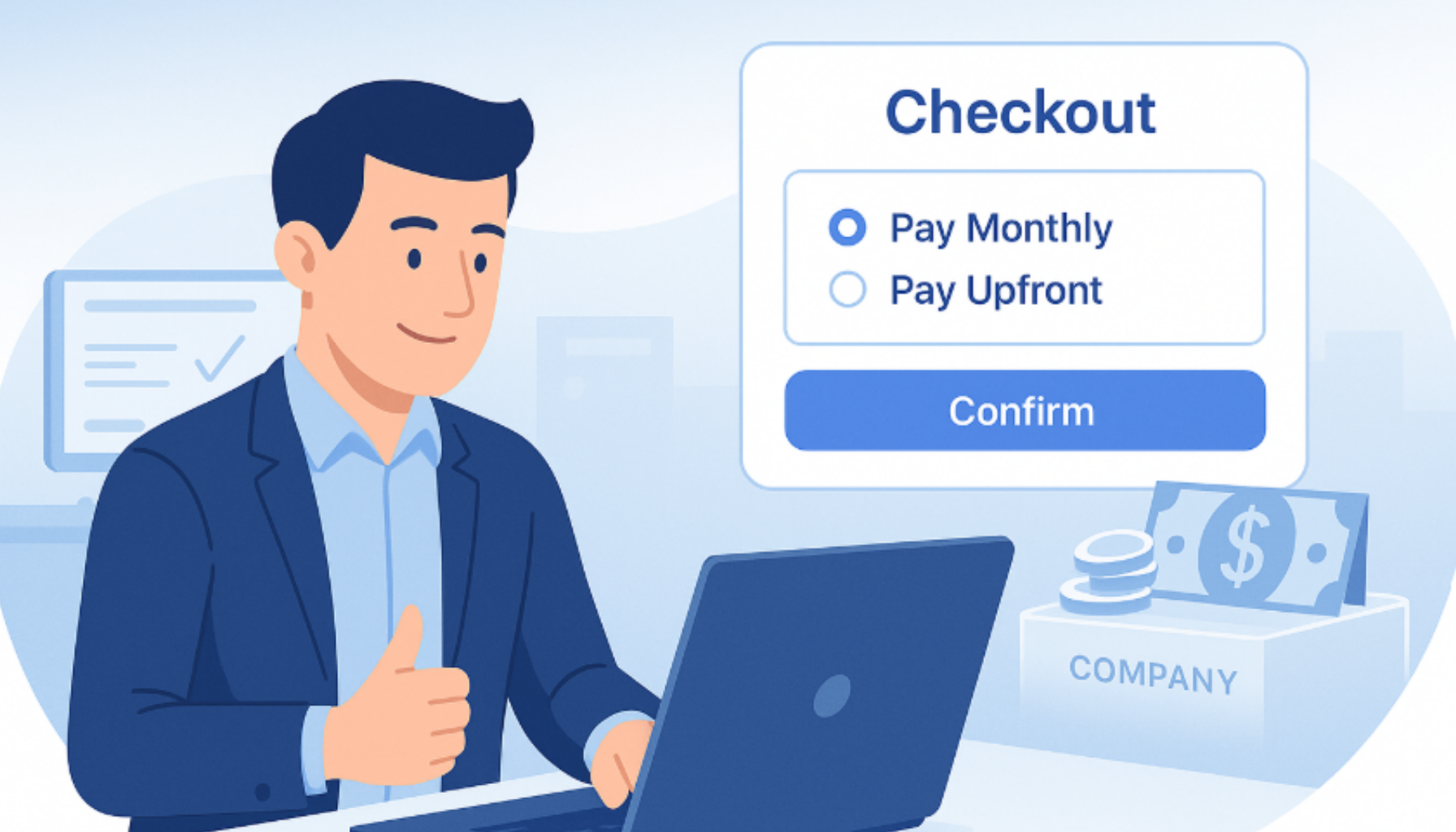Watch our Masterclass |
Reduce Cash Flow & Working Capital Issues Without Pissing Off Your Sales Team!
Recording Available

11 AM PT / 2 PM ET

We're incredibly excited to announce that Ratio has secured $411M to fuel the transformation of B2B financing.

SaaS companies lose revenue when deals stall over payment friction. Embedded finance platforms let B2B companies offer flexible terms while collecting cash upfront, boosting conversions, removing discount pressure, and accelerating growth. This guide compares the top embedded finance platforms built for B2B SaaS in 2025 and how to choose the one that best fits your sales motion.
.png)
🚨The Challenge: Revenue’s up, but you can’t fund what’s next Sales are closing. ARR is rising. But when it’s time to hire, expand, or invest, cash isn’t there yet. In SaaS, working capital isn’t just a finance metric. It’s your ability to fund growth, stay flexible, and absorb shocks. At its core, it answers: 👉 Do we have enough cash on hand to make our next move?
.png)
🚨 The Hidden Risk: SaaS sellers are quietly financing their buyers—and it’s draining their growth. To close deals, teams offer net terms, monthly billing, or deferred starts. Buyers get flexibility. But sellers? They deliver value now and wait —sometimes months—to get paid in full. It feels like sales enablement, but it’s something else: funding customer affordability out of your own cash flow. Without structure, it erodes margins, slows collections, and increases risk. 🕒 CAC payback stretches 💸 Discounts pile up 📉 Churn, defaults, and forecasting issues grow
.png)
The Challenge: You’re growing, you’ve invested in tools—and yet, everything feels harder to manage. As your company grows, so do the tools. 🧾Sales adds a quoting platform to move faster. 💳Finance brings in a billing system to manage revenue. 📊RevOps implements dashboards to track performance. Each team chooses what works for them. In fact, teams use an average of 10 tools to close deals. But none of it works together.
.png)
🚨The Challenge: Your Q2C Stack Is Fully Automated—But Cash Is Still Delayed Modern SaaS leaders have poured tens of millions into Quote-to-Cash (Q2C) systems. No surprise, the market is projected to grow from $2.8B in 2024 to nearly $5.9B by 2033. On paper, the promise is compelling: ⚡faster quotes, fewer errors, streamlined billing. But here’s the catch—these platforms optimize internal workflows, not external outcomes. They assume buyers can pay. They do nothing to ensure the cash actually arrives. 💰And without cash, revenue isn’t real.

🚨 The Challenge: You close the deal—but cash doesn’t follow. Revenue gets booked, but collecting it happens later—often manually, with no clear owner. As volume grows, so do aging invoices, missed follow-ups, and stalled cash flow. This isn’t just inefficient—it’s expensive. A 2025 benchmark found that 22.2% of fast-growing SaaS companies lose over 10% of ARR to late payments and defaults—not churn, but customers under contract. That gap between revenue and realization isn’t just a finance issue. It’s a growth constraint.
.png)
🚨The Hidden Growth Barrier: SaaS revenue is growing—but cash isn't keeping up. 💥 Sales teams are closing more deals—offering discounts and flexible payment terms to win logos. But Finance is left asking: “How much of that ARR is actually usable cash—right now?” Too often, the answer is: not much.

The Challenge: Most SaaS founders think Series A solves their capital problem—until they start scaling. You’ve raised Series A. It got you to product-market fit, a lean Go-To-Market (GTM) engine, and your first wave of customers. But now you’re scaling the business—and though you’re growing fast, you’re burning even faster.
%20to%20SMB%20Clients%20(1).png)
The Challenge: You want to tap into the Small and Midsize Business (SMB) segment—but your SaaS pricing and standard payment terms are pushing them away. SMBs (often called SMEs) make up 99% of all businesses—and the B2B segment among them represents a trillion-dollar market. If you’ve built a high-value product for modern companies, you can’t afford to overlook this segment. But SMBs buy differently: lean teams, short planning cycles, and tight cash flow.

The Challenge: You believe upfront payments are good for your SaaS business—until you realize they’re costing you deals. SaaS companies love upfront payments. All cash in, risk out. What's not to like? But in B2B SaaS—where the average deal can run from $4,800 to $220,000—how you ask to get paid can speed things up or stop them cold. Asking for full payment upfront often leads to the following: ❌ CFO pushback on lump-sum invoices ❌ Procurement demands for installments ❌ Sales discounts just to keep the deal alive